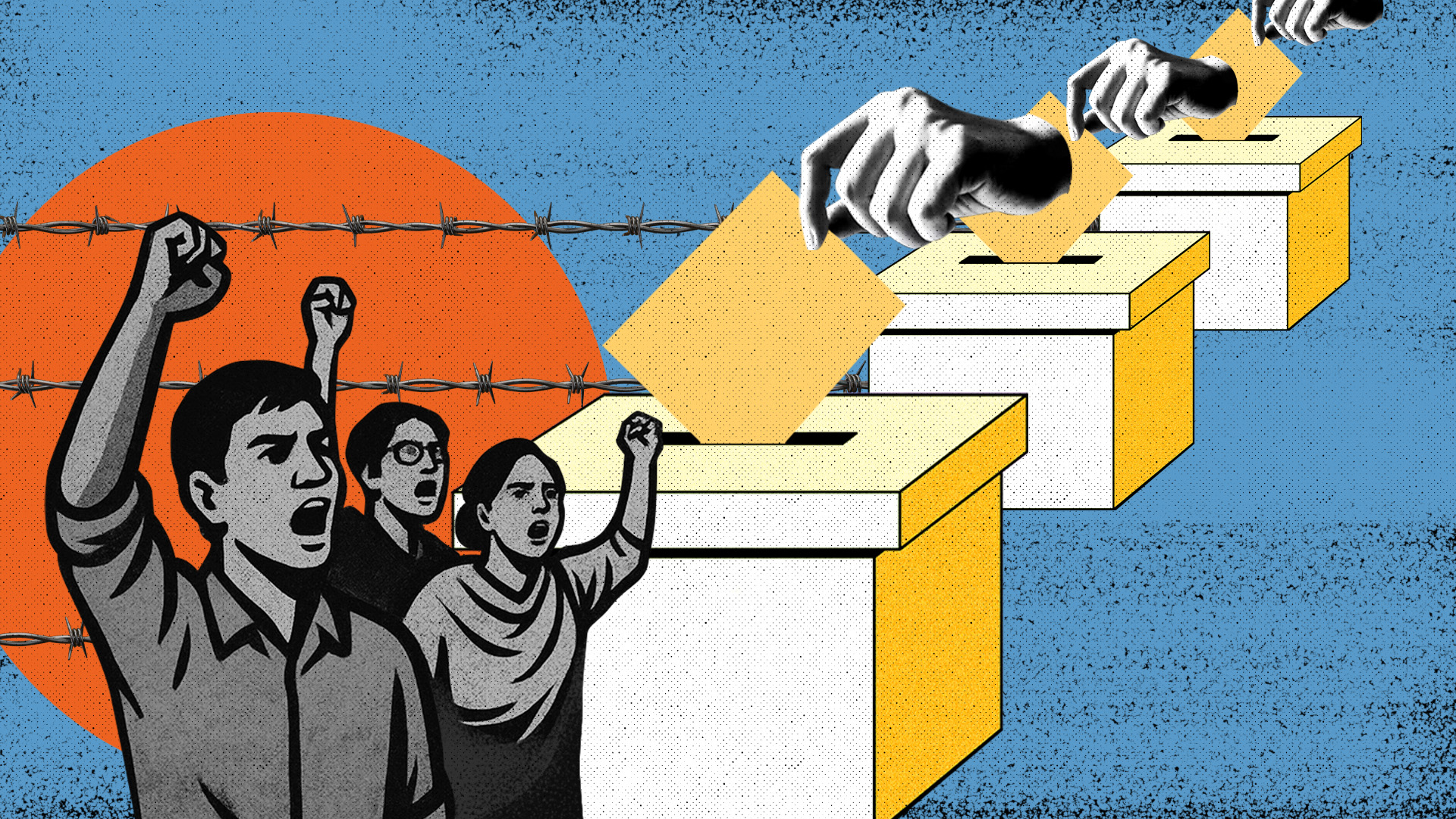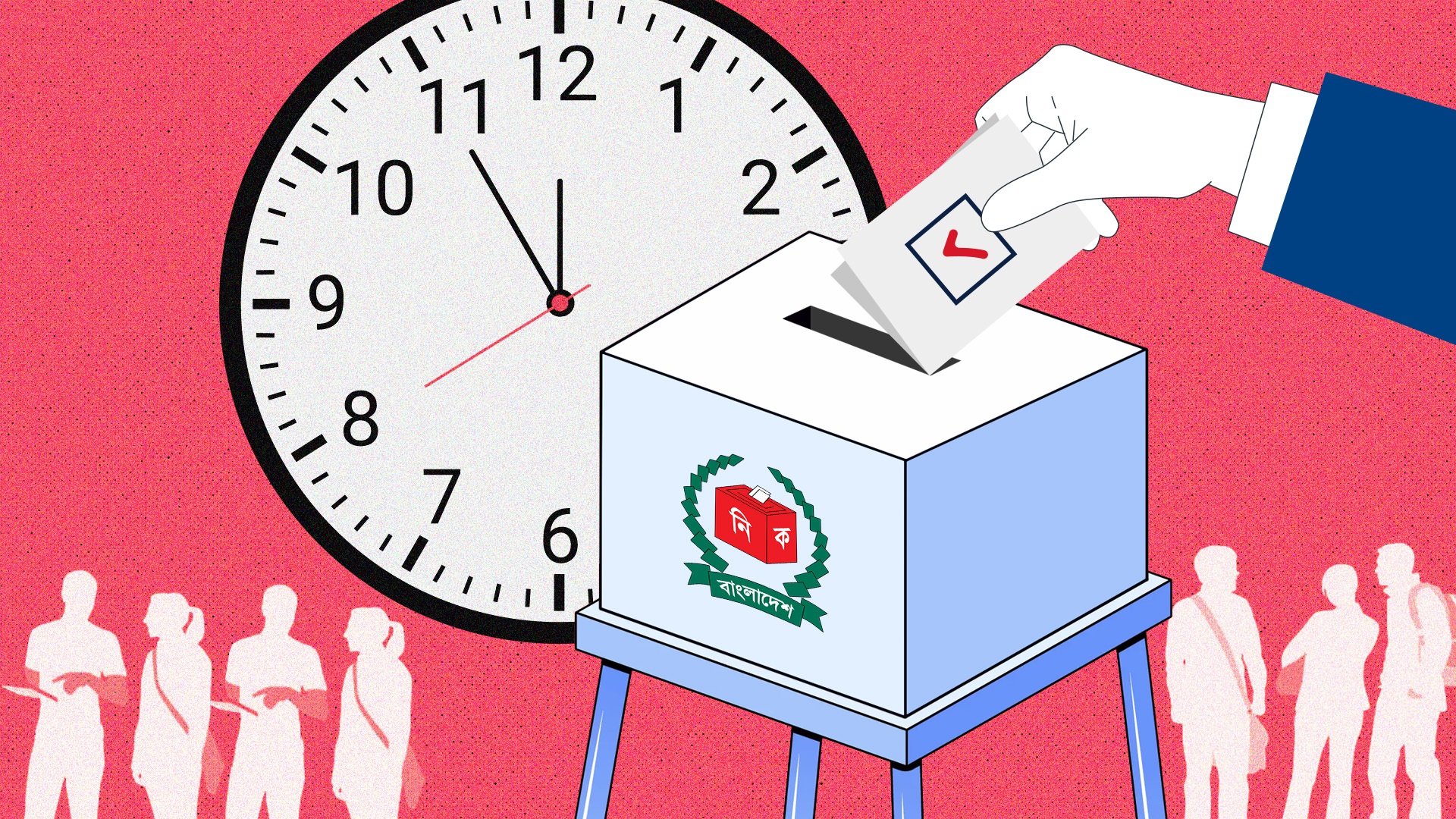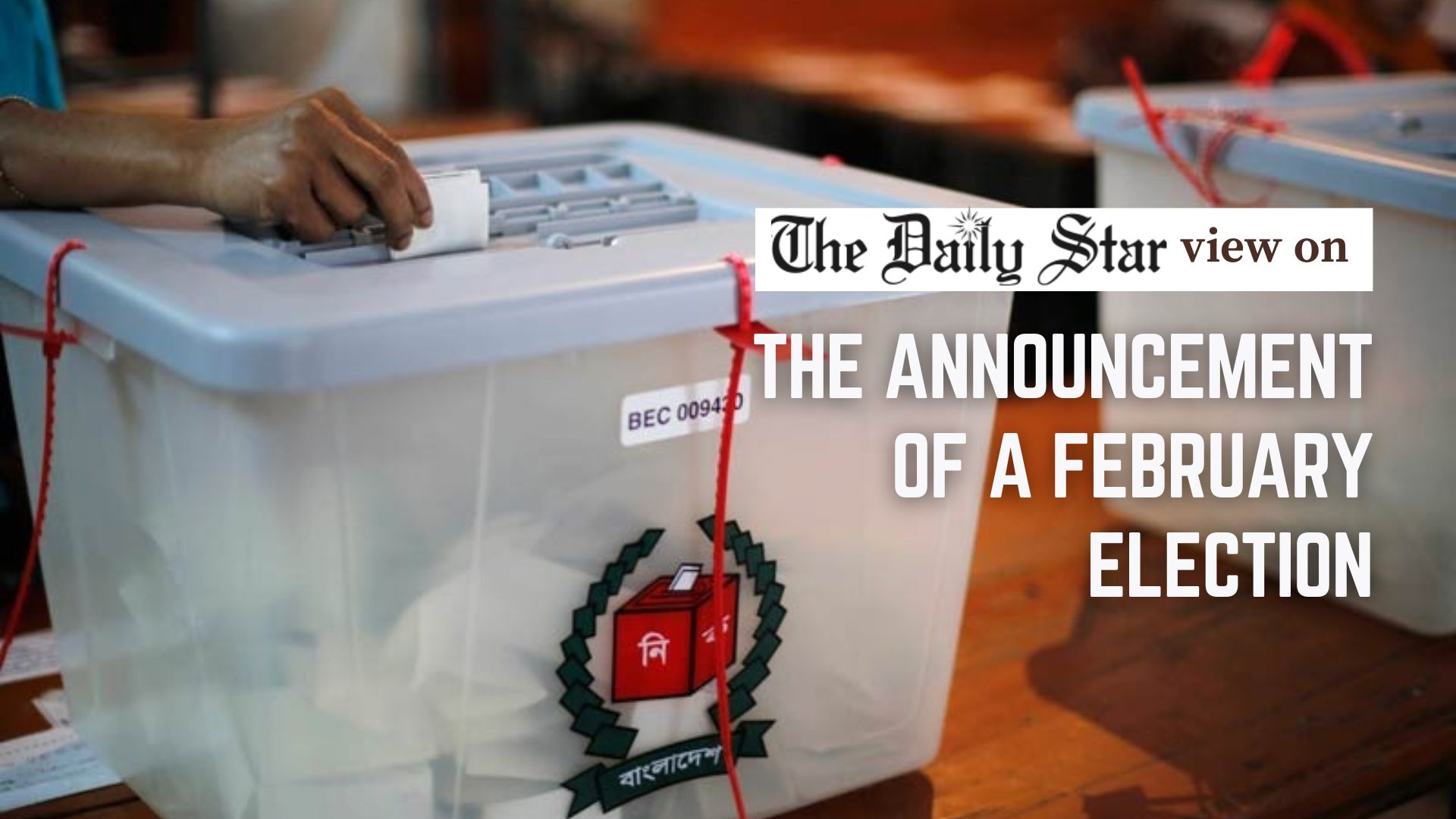Hope and despair cloud the prospect of February polls

Bangladesh appears to be getting pulled in opposite directions by two political currents, creating a contradictory mood about the immediate future of the country. At the centre of this apparent tug of war is the timing as well as purpose of the next election.
The source of one of the currents is the optimism generated by the announcement of a February date for the election, with the Election Commission recently unveiling a "roadmap" to finish all preparations beforehand. With the polls less than six months away, a lot of people are hopeful that the uncertainty that has hung over the country for the past year or so will dissipate once an elected government assumes power.
The other, pessimistic current derives its strength from the apprehension that a chain of events may be unleashed to derail the election or make it so controversial as to ignite yet another period of chaos and agitation. Such apprehensions are just as legitimate as the reasons for optimism, as they are rooted in the behaviour and pronouncements of some key political players. These raise doubts about the interim government's ability to stick to its declared timetable.
Even though about 50 parties are currently registered with the Election Commission (with 147 more having applied for registration ahead of the upcoming polls), in reality, the opinion of no more than three or four parties matter to any great extent. These parties are engaged in a battle of wills, each seeking to shape the election to their advantage, thus contributing to the ebb and flow of the contradictory currents.
The biggest of these parties, of course, is the Bangladesh Nationalist Party (BNP). It has always been vocal about elections under a neutral, caretaker government, for which their leaders and workers suffered enormous repression for over a decade. They appear most keen among the major players to ensure that the election takes place in February, but they are also acutely aware of the obstacles ahead.
"We have extended all cooperation to the government, did not create any obstacles anywhere," BNP leader Mirza Fakhrul Islam Alamgir told a meeting at the National Press Club on August 27. "Unfortunately, some political circles today are purposefully raising some new demands in an attempt to hamper the elections… They are raising such demands with which the people of the country are not familiar."
It is not difficult to figure out which political circles or demands Mirza Fakhrul was talking about. In recent weeks, two other major political forces have been increasingly vocal about what they see as the inadequacies of an election in February: Jamaat-e-Islami and the National Citizen Party (NCP).
There is no doubt that Jamaat has emerged as a key player in post-Sheikh Hasina Bangladesh. It has been one of the major beneficiaries of the anti-Hasina movement's success. In principle, Jamaat does not seem to have anything against a February date for polls. In fact, its leaders were among the first to suggest a "pre-Ramadan" election. But lately, their public uttering has cast doubt about their sincerity. During a major rally in Dhaka on July 19, Jamaat tabled a list of seven demands, which were headed by a call for the next election to be held under a proportional representation (PR) system—something the BNP flatly refuses to support. Jamaat also wants implementation of reforms before the polls.
It is not clear whether Jamaat would boycott the polls if they are not held under a PR system, but they have created enough uncertainty about their intentions by threatening a "movement" if their demands are not met.
The NCP, which was formed by student leaders who were at the forefront of last year's movement against Hasina, has gone a few steps further in creating uncertainty about the elections. At various times, NCP leaders have demanded that the next election be held to elect a constituent assembly, whose role would be to draw up a new constitution. This raises many questions. The demand for a constituent assembly could be seen as a tactic to prolong the lifetime of the current interim regime. In the unlikely event that the election is indeed held to elect a constituent assembly, Prof Muhammad Yunus and his council of advisers would likely remain in charge until a new constitution is promulgated and the election is held under the provisions of that constitution to elect a new parliament and government.
No other party supports, at least publicly, such a demand. But the NCP's apparently belligerent position increases pressure on the Yunus government. Although NCP's support among the population is still unknown and untested, their influence in the interim government and in the wider political scene cannot be overestimated. The NCP, which can't shake off the "King's Party" label, believes that the July Charter—which is basically a list of the major reform proposals that have been agreed upon during deliberations by the National Consensus Commission—should be given "legal basis" before any election.
Most recently, the party has suggested holding simultaneous polls for the parliament and a constituent assembly, after granting "legal basis" to the July Charter. "If this task can be completed by February, we are ready for elections in February," NCP leader Nahid Islam told reporters at Dhaka airport on August 27. This leaves their intention about the election shrouded in a smoke of doubt. The NCP evidently does not want the fate of constitutional reforms to be left to an elected parliament. They want the July Charter to be the basis for a new constitution, which cannot even be challenged in a court of law. That in itself is likely to sow the seeds of future unrest.
For its part, the BNP has made it clear that it has no problem with the interim regime implementing legal reforms through ordinances, but all reforms requiring amendment to the constitution should be left to the elected national assembly. They see the demands for a PR system or elections for a constituent assembly as mere manoeuvres. "Demanding PR or a constituent assembly is a political tactic, and these statements are aimed at stirring up the field," senior BNP leader Salahuddin Ahmed told reporters on August 26.
The question now is, to what end are these demands being made? And how likely are they to push back the date for the election?
Any deviation from the February deadline would serve to prolong the life of the interim regime. This may please a section within the government and their allies, but further delays to holding the election would breed the same kind of frustration that the nation observed once Sheikh Hasina abolished the caretaker system in 2011. It is important for Prof Yunus to understand that his task at this critical juncture is to hold a free and fair election in February, and peacefully transfer power to the elected government. The task of implementing reforms is best left in the hands of the elected representatives, and not to commissions he appointed.
Sabir Mustafa is former head of BBC Bangla and former managing editor of VOA Bangla. He can be reached at sabir.mustafa@gmail.com.
Views expressed in this article are the author's own.
Follow The Daily Star Opinion on Facebook for the latest opinions, commentaries and analyses by experts and professionals. To contribute your article or letter to The Daily Star Opinion, see our guidelines for submission.




 For all latest news, follow The Daily Star's Google News channel.
For all latest news, follow The Daily Star's Google News channel. 


Comments